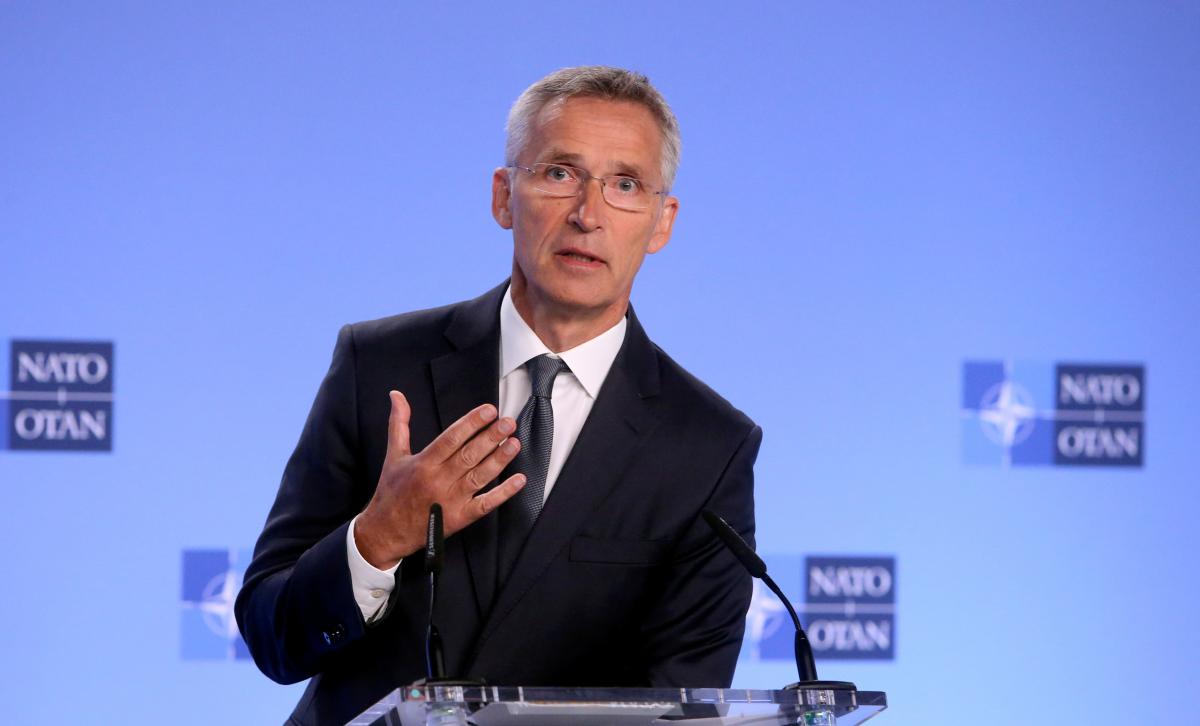
NATO Secretary General Jens Stoltenberg says that Russian President Vladimir Putin is responsible for Russia's aggressive actions against NATO allied member states.
"President Putin is of course, ultimately responsible for all actions taken by the Russian state. And we have seen a pattern of aggressive behaviour, including attempts and targeted killing of opponents, and in NATO, we are of course also very concerned about the reports about Russia, promising bounties for the killing of NATO soldiers in Afghanistan," he said on March 22 ahead of NATO Foreign Ministers' meetings at NATO's Headquarters on March 23 and March 24, 2021.
"The relationship between NATO and Russia has been difficult for some time now, and that is a result of Russia's behaviour, violating national law, using military force against neighbours; Georgia and Ukraine. But also, Russia is responsible for aggressive actions against NATO allied member states through cyber, interference in our domestic political processes, and so on," he said.
"And this pattern of Russian behaviour over some years, has triggered the biggest adaptation of our Alliance, since the end of the cold war, with high readiness of our forces, with deployment of battlegroups in the eastern part of the Alliance, with increased spending, and also of course the fact that we are stepping up our efforts when it comes to cyber defence, but also clearly condemning the behaviour of Russia when they violate international law but also cracking down on peaceful demonstrators at home. And we see a pattern of aggressive actions abroad and suppression of peaceful dissidents at home," he said.
Stoltenberg said that together with Finland and Sweden, as well as the EU High Representative, NATO's foreign ministers will address the Alliance's relations with Russia.
"Russia continues to suppress peaceful dissidents at home, and display a pattern of aggressive behaviour abroad," he said. "Including with cyber attacks, and attempts to interfere in our elections and undermine our democracies."
According to him, as an Alliance, NATO remains committed to a dual-track approach to Russia – strong deterrence and defence, combined with openness to meaningful dialogue, including on issues such as arms control.
"All Allies welcomed the recent decision to extend the New START Treaty. This is an important beginning. But we need to further strengthen international arms control," he said.
Other related news reports
- Ukraine, U.S. defense chiefs talk Enhanced Opportunities Partnership implementation
- Zelensky approves regulation on Ukraine-NATO Annual National Programs
- Zelensky calls NATO Membership Action Plan Ukraine's immediate goal
- Markarova to work on Ukraine getting NATO Membership Action Plan
- NATO to review Comprehensive Assistance Package for Ukraine – Stoltenberg
- Ukraine PM offers Germany to exchange experience in cybersecurity


